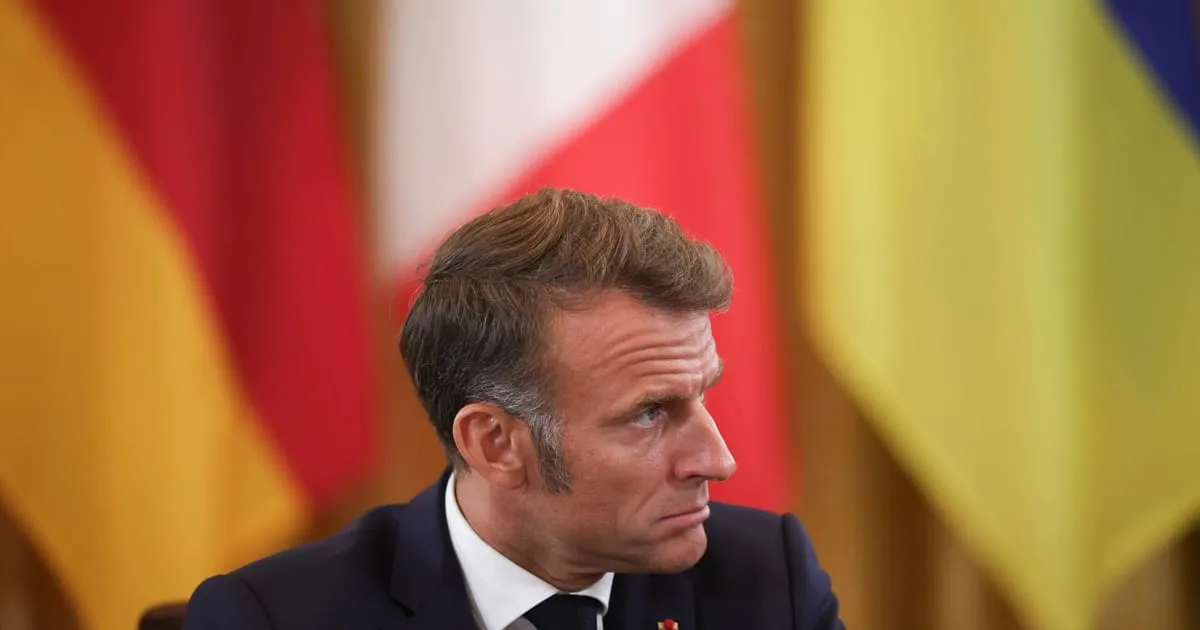
In a critical moment for France, President Emmanuel Macron faces an increasingly precarious political and economic landscape. On Monday, the ousting of his key ally, Prime Minister François Bayrou, unfolded in a dramatic no-confidence vote. A staggering 364 lawmakers voted against Bayrou, while only 194 supported him, marking a significant blow to Macron's administration. Following this political upheaval, Macron's office announced that he would appoint the country's fifth prime minister in less than two years within “the next few days.” However, skepticism looms over whether the incoming appointee can successfully implement the necessary budget cuts to prevent France's debt crisis from spiraling further.
Macron's leadership is now under intense scrutiny, with public discontent reaching a fever pitch. The president's popularity has plummeted to an all-time low, now lower than during the peak of the Yellow Vest protests of 2018 and 2019, which were among the most significant challenges of his presidency. With threats of a national shutdown on September 10 and major protests organized by trade unions for September 18, Macron is under increasing pressure to stabilize the political climate.
Despite his historical knack for political survival, Macron's hopes for a coalition with moderate leftists, centrists, and the conservative Les Républicains party seem increasingly tenuous. The scale of Bayrou’s defeat indicates that Macron's efforts may already be doomed. Opposition parties have rallied around the idea that the president is primarily at fault for the current stalemate. Boris Vallaud, the Socialist Party’s parliamentary leader, stated, “There is only one person responsible for the crisis, for the fiasco and instability, it’s the president of the Republic.” This sentiment is echoed by other opposition leaders, who are calling for Macron's resignation.
Macron's ability to unite the political center is increasingly challenged by the rise of the far-right National Rally and the far-left parties, both of which are gaining traction against the backdrop of proposed austerity measures. The ideological divide between the center-left Socialists and the center-right Les Républicains complicates any potential coalition, as both factions hold fundamentally different views on economic policies. This discord raises significant concerns about France’s financial future and its implications for the larger European Union.
In his farewell address to the National Assembly, Bayrou emphasized the gravity of France’s financial situation, warning that the nation faces a “life-threatening” level of debt. His remarks prompted opposition leaders to contemplate a future without Bayrou. Vallaud of the Socialists urged Macron to appoint a prime minister from their ranks, proposing a shift towards a fairer tax policy. Speculation abounds regarding potential alliances, including the possibility of a grand coalition or a non-aggression pact between the Socialists and Les Républicains.
While a government supported by both the Socialists and Les Républicains could theoretically secure broader parliamentary backing than Bayrou’s government, the practicality of such an alliance remains questionable. The historical enmity between these two factions presents a significant hurdle. However, some lawmakers may recognize that compromising now could be more beneficial than risking their parliamentary positions in a snap election.
Despite these considerations, significant obstacles remain. Laurent Wauquiez, the parliamentary leader of Les Républicains, has voiced strong opposition to any socialist-led government that aligns too closely with radical left-wing ideologies. The upcoming local elections in March 2026 further complicate any potential partnerships, as opposition parties may hesitate to associate themselves with a president facing declining popularity.
Even if centrist parties agree to collaborate on a budget, the unpredictable nature of rank-and-file lawmakers poses a challenge. The recent no-confidence vote against Bayrou exemplifies this unpredictability, as divisions within Les Républicains became apparent with conflicting votes among their members. As Macron navigates this tumultuous political landscape, the path ahead appears fraught with challenges.